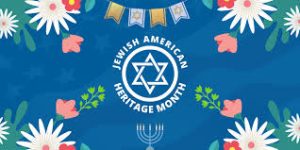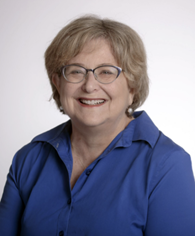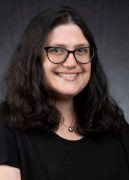
As May begins this year, Jews have just wrapped up Passover, an eight-day celebration that is one of the most important holidays in the Jewish religion. Now, we enter Jewish American Heritage Month. Proclaimed in 2006, Jewish American Heritage Month celebrates the Jewish American experience and the role that Jewish Americans have played in our national story here in the U.S.
Jewish Americans account for 2.4% of the total U.S. population, and less than 1% of the population here in Arkansas, so it is understandable that many Americans are not familiar with what it means to be Jewish. To me (Reecie), I think one of the most important things to clarify is that Jews are a people; we are not just identified by our religious practice and beliefs, which can range from very strict adherence to nonexistent, but by our shared ethnic identity, which includes history, traditions, and Jewish languages. For Jews who were not born as Jews, the process of conversion is one of joining a peoplehood, not just accepting a faith.
Many Jews share an immigrant experience. Both of us are Ashkenazi Jews, tracing our ancestry to the Jewish diaspora in Central and Eastern Europe. We are both descended from those who fled pogroms in the Pale of Settlement in the early 20th century and arrived on the shores of the U.S., Joanne’s family settling in New York, and Reecie’s in Philadelphia and Detroit. While most Jews in the U.S. are Ashkenazim, we also include Sephardim (communities that developed in the Iberian peninsula), Mizrahim (communities from southwest Asia and northern Africa), Beta Israel (Ethiopian Jews), and others. Furthermore, approximately 12-15% of American Jews are Jews of Color.
I (Reecie) have always been proudly Jewish, but I have also spent most of my life in communities where Jewishness is not the norm, and have often felt pressure to conform and assimilate. In recent years, I have tried to reconnect to my Jewish heritage through the study of Yiddish, the language of my ancestors in Europe. Yiddish is a Germanic language with a considerable amount of vocabulary and grammatical features from Hebrew, Aramaic, and Slavic languages. It is written using the Hebrew alphabet. I am nowhere near proficient, but I can say איך רעד אַ ביסל ייִדיש (Ikh red a bisl Yiddish)!
There are some things I (Reecie) really love about Jewish tradition. In Jewish circles, “two Jews, three opinions” is a common saying. There is truth to this statement; Jewish tradition encourages vigorous debate, intense self-reflection, and continuous improvement. Furthermore, the concept of tikkun olam, or “repairing the world,” is important to many Jews today and guides us to work towards improving society.
I (Joanne) have realized that I grew up taking my Jewishness for granted; it was always in the background because I lived in communities with a relatively high density of Jewish people. For example, in the Eastern suburbs of Cleveland where I grew up, there were easily two dozen synagogues of various persuasions–orthodox, conservative, and reform–and at my reform temple, there were 100 students confirmed in my 10th grade year.
When I moved to Little Rock, I was in for a shock. I would ask in stores for Matzah or Chanukah candles, and I would only get quizzical looks. I was surprised at the amount of emphasis on churches, on neighbors immediately asking me what church I attended, on students asking me if I thought they were taking Christ out of Christmas. And I was surprised there was just one Reform Synagogue in town.
Over the years, I’ve increasingly taken my Judaism to the forefront. I’ve learned that although it is not as obvious, there is a rich Jewish tradition here in Arkansas and indeed all over the country. In fact, I’ve seen a whole other path for Jewish immigrants, a path that is repeated across the South. I love learning about the history of Jews in Arkansas. In Little Rock, there used to be three major department stores, Gus Blass, Pfeifer Bros, and MM Cohn, all started by Jewish immigrants, mostly from Germany, who came to the area in the 19th century. The descendents of these families are still active members of the Little Rock Jewish community. Another industry, scrap metal recycling, has also been primarily Jewish in Little Rock and indeed nationwide. Until recently, as many as 90% of all such businesses have been Jewish owned, started by early 20th century immigrant peddlers. Little Rock’s three major scrap metal companies, Tenenbaum Recycling Group, Sol Alman Co., and Metal Recycling Group, are still active in central Arkansas. The namesake of our Ottenheimer Library, Gus Ottenheimer, is another famous Jewish Arkansan, operating at one time one of the largest dress-making factories in the nation, known for its humane labor policies. Ottenheimer was committed to education and led the task force to create what became UA Little Rock, serving on its first Board of Visitors.
Jewish religious institutions have been established in the state since the middle of the 18th century, and there have been congregations not only in Little Rock but in numerous small Arkansas towns like Helena, Eudora, and Blytheville.
Jews played an important role during what is arguably Little Rock’s most infamous event, the Central High crisis, with Congregation B’Nai Israel’s long-leading rabbi, Ira B. Sanders, taking a public and prominent role in promoting integration, and many Jewish women serving with Irene Samuels on the Women’s Emergency Committee (WEC).
Like Reecie, I (Joanne) have become increasingly interested in connecting with my Jewish heritage. I now play mahjong regularly with my grandmother’s 80-year old mahjong set, continuing a tradition that started almost a hundred years ago when my grandmother first moved to the United States.
We hope that here at UA Little Rock, you will join us in celebrating our Jewish American faculty, staff, and students by learning a little about our culture, history, and religion, or even just by enjoying a delicious piece of babka!

Dr. Joanne Matson, Professor of Rhetoric and Writing
University of Arkansas at Little Rock

Dr. Maureece (Reecie) Levin, Assistant Professor of Anthropology
University of Arkansas at Little Rock